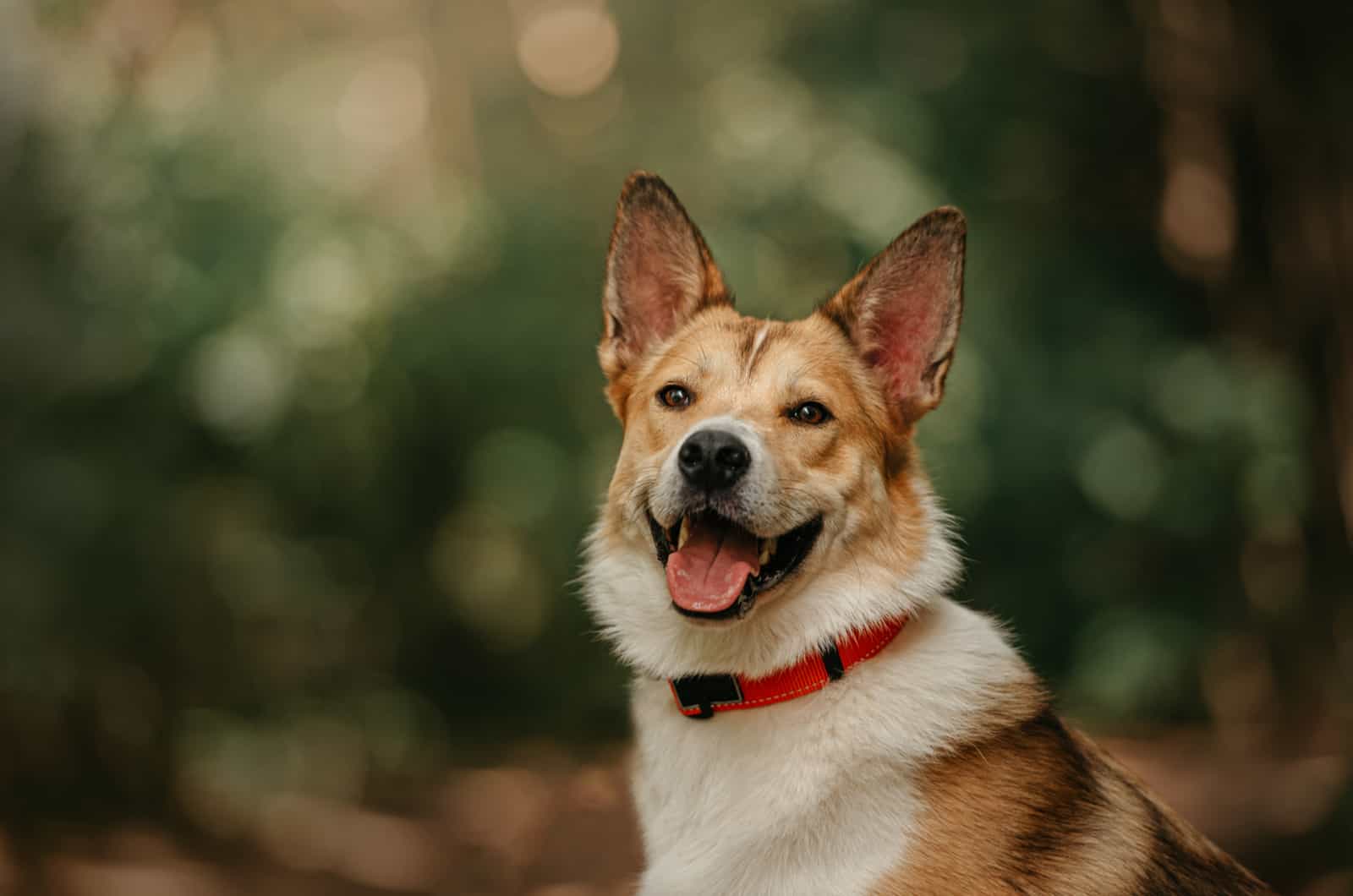Puppies are great, aren’t they? They bring so much joy, laughter, love, and fun into our lives.
On the other hand, those cute little furballs can be a real challenge to look after, especially for first-time dog owners!
You’ve taken on the role of mom, and it’s your job to teach them everything they need to know, including potty training.
Some breeds learn this quicker than others, while certain breeds can be particularly stubborn. Either way, you might have picked a pup who just won’t play ball when it comes to toilet training.
Don’t worry; you’ve joined an exclusive club of dog owners who take to the internet in search of advice, saying, ‘My puppy won’t poop outside. What can I do?’
If this sounds horribly familiar, fear not: we have some advice that should help resolve the problem!
Help! My Puppy Won’t Poop Outside!
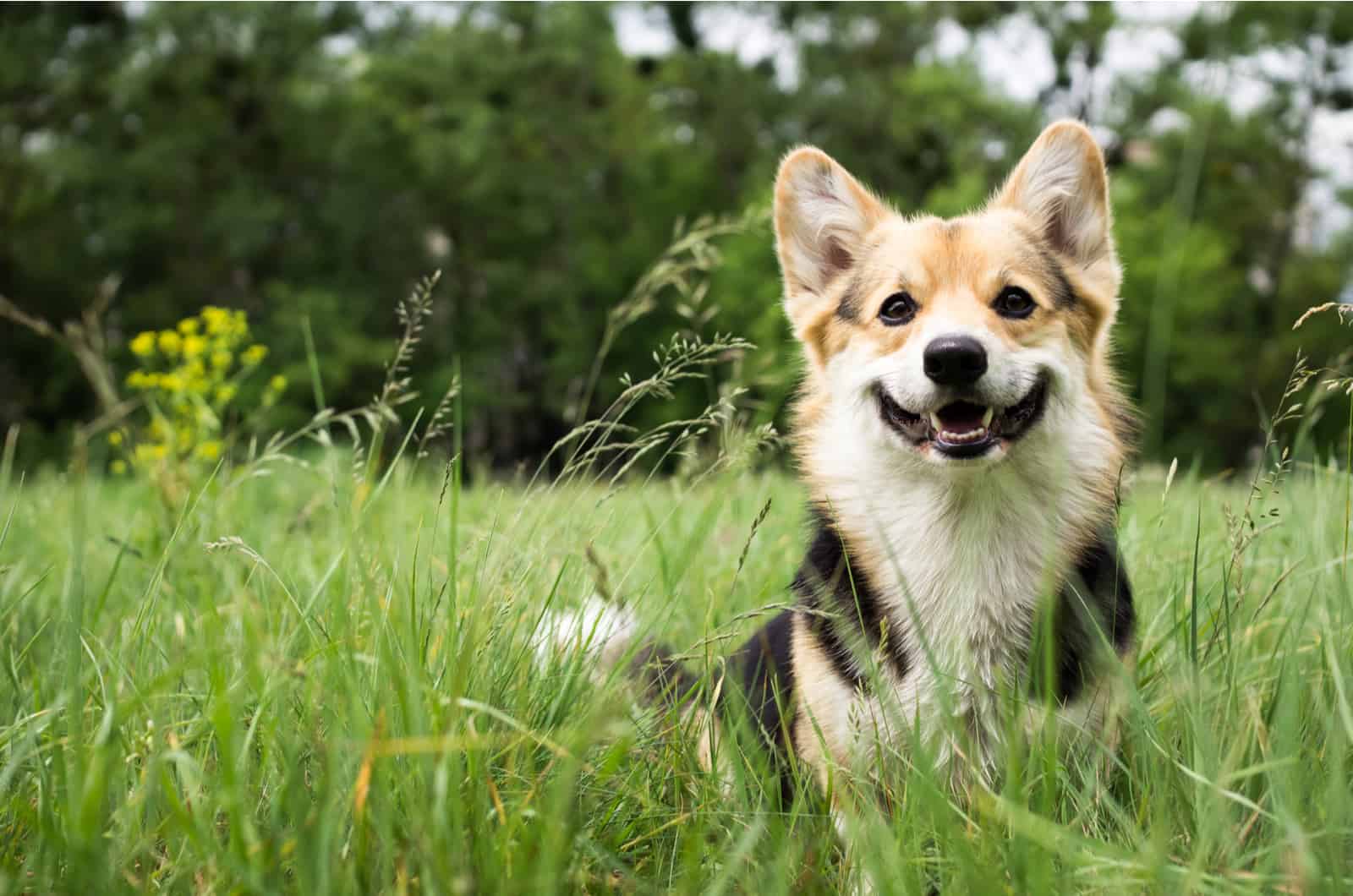
So, you’ve had your new puppy for a short while, and you’re trying to teach it the house rules, including potty training. Maybe it’s not going so well, and your precious pup refuses to go outside for his bathroom breaks.
This is a common cause of puppy blues or owners believing their puppy doesn’t like them, among other things.
The first thing to acknowledge is that it can take between four and six months to fully housetrain a puppy, even up to a year, in rare cases.
There are two things to take away from this: if it’s taking longer than expected, don’t feel that you’ve failed! You may have only been trying for a few days or weeks, so don’t give up.
Also, don’t be alarmed by these average times, as most pups learn what to do in well under four months; it all depends on the breed and the individual dog. Many puppy owners have successfully potty trained their pooch in four weeks or less.
Don’t be discouraged by websites claiming to have completed the process in 3, 5, or 8 days! Many of these people are breeders or professional dog handlers with many years of experience.
And some of these claims are simply clickbait, throwing out sensational lines to get you to visit the website. It’s highly likely that many of these boasts of super-quick potty training are untrue.
But Why Won’t My Puppy Poop Outside?
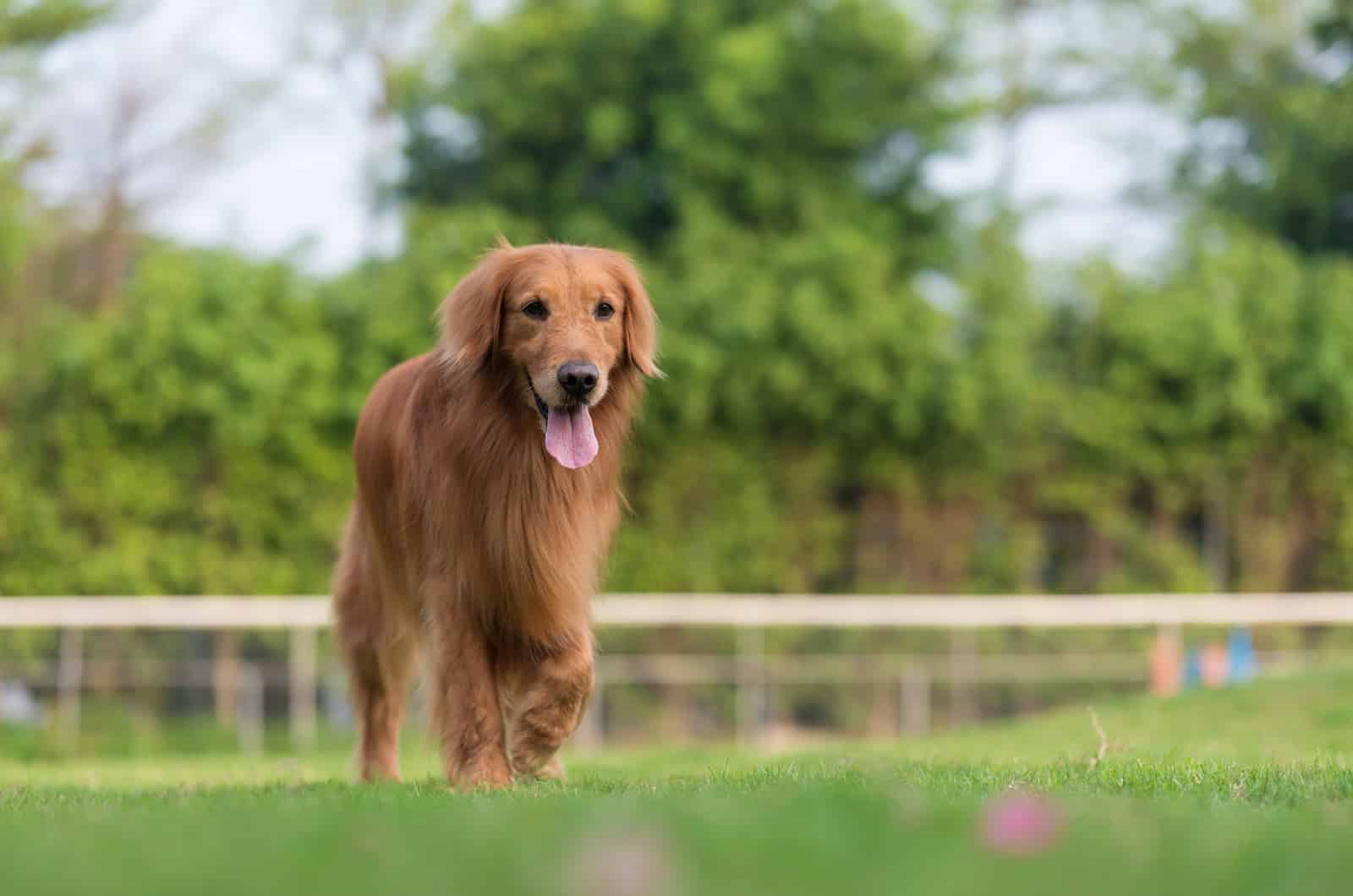
Right, let’s look at the possible reasons why your pup is reluctant to head outside to do his business.
Before we do so, it’s essential to remember that potty training should start as soon as you get your new pup home. Good breeders don’t release pups until they are between eight and twelve weeks old. Ideally, housetraining should begin during this period and left no later.
The longer you leave this process, the harder it will be!
We’ll explore some training methods and solutions later, but first, here’s what could be stopping your pup from heading outdoors for a potty break:
• They have a medical issue. This is one to be aware of, as something may be causing your pup to lose control of his bowel movements. Incontinence could be a sign of a serious health issue, so a trip to the vet is advisable. Check for other symptoms to help your vet reach a quick diagnosis.
• They don’t like the bad weather. Can you blame them? Many dogs would rather stay inside a warm, dry home rather than brave the rain, sleet, or snow! In fact, if we’re honest, most dog lovers feel exactly the same.
• They are afraid of something. Some puppies are easily scared, and something may have spooked them while they were outdoors the last time. This may be why they aren’t keen on heading out there again. It might take a while, but it’s your job to convince your pooch that all is well. This is more likely to be a problem at night when puppies can be restless, so you might want to provide a light source of some kind. If you don’t already have some, invest in outdoor lighting or use a powerful flashlight.
• They are being stubborn! Did you get a Jack Russell, Pug, Afghan Hound, Beagle, or Basset Hound? Congratulations, you picked one of the most challenging dog breeds to housetrain! There are others, but these ones are among the worst culprits. However, you may simply have one very strong-willed puppy on your hands, regardless of breed.
• They are very young. Young puppies can be difficult, but don’t worry, they’ll get easier over time. It takes a while for puppies to control their bowel movements. Be patient and avoid scolding your pup. The only thing they’ll learn is to fear you. Generally, a puppy will be around six months of age before it has complete control over its bodily functions.
• Pooping indoors has become a habit. Puppy pads are useful, but your pooch could get too used to using them! We’ll come back to this subject later.
• The puppy is following its instincts. Dog poop contains enzymes that act as territorial markers. These are incredibly difficult to remove without specialist cleaners! If your pup has gotten used to pooping in a particular spot indoors, he will detect the scent. Chemicals in the feces will trigger the urge to potty, so that’s where he’ll go. Invest in an enzymatic cleaner spray that masks the scent, and you can break the habit.
• They don’t like the feel of grass. It’s cute but true for many puppies. The only way you’ll overcome this problem is to get them used to it gradually. You could avoid this problem entirely by getting your pup from a reputable breeder that socializes their puppies early, as they will expose them to a wide variety of situations and experiences. Many are situated in the country on farms and ranches and will have acres of grassland for the pups to roam and play.
These are the more common reasons for the problem, and you should take heart from the fact that they can all be overcome. All it takes is perseverance and a little effort, and we can help you with some friendly advice.
How Can I Get My Puppy To Poop Outside?
There are many different potty training methods to choose from, so it’s up to you to try some out to get the best results.
The key to all of them is to be consistent and patient and to only ever use positive reinforcement. Shouting and scolding are counterproductive, and on no account should you resort to hitting your puppy.
As for the old-fashioned practice of rubbing their nose in it, where do we start? It’s outdated, cruel, wrong, and pointless. Leave this method in the dark ages where it belongs, and focus on rewarding your furry friend for complying rather than punishing him for his mistakes.
Here are some tips on how to get your beloved pooch to pee and poo outdoors instead of on your best rug.
Crate Training
A good quality crate could be your best friend here. Seriously, investing in a good-quality dog crate will help in many ways. Don’t be concerned by the idea of confining your fur baby; most dogs love having a safe space of their own. Make it comfortable and secure, and your pup will settle in before you know it.
In the wild, dogs always seek a place to make a den. If you don’t provide one, it’s pretty likely that your pup will find one of its own! A kennel works better for some dogs, while a wire crate is better for others. Take some time to research this to ensure you get the right one.
Whichever one you go for, it has to be the correct size: large enough for your dog to stand and turn around, but not so large that it allows for a potty area!
Dogs are basically clean creatures and will not usually soil their sleeping space. Therefore, a puppy in its crate is less likely to poop there.
Get To Know The Signs!
As time passes, you’ll learn more about your puppy. Observe them closely and see what signs they are giving you.
Scratching at the back door and whining is a pretty sure sign that your dog needs a bathroom break. However, few puppies are so obvious. If you spot yours circling on one spot and sniffing, it may be time to head to the potty area.
Just don’t mistake this for some possibly dangerous signs, such as having a puppy breathe fast.
While potty training, keep your pup in the crate at night and for certain periods throughout the day. When you take him out to potty, wait for only 15 minutes to see if he performs. If not, put him back in the crate for another 15 minutes and try again.
And when the pup is very young, be prepared to take them out at night as tiny pups often can’t hold it in all night!
Go For Long Walks
Most dogs love a good walk! It’s mentally stimulating as well as good for their physical health. They get to experience all sorts of exciting sights, sounds, smells, and textures. It’s great fun! And the longer you’re out and about, the more likely it is that your pup will feel the urge to poop.
Of course, that’s when all responsible pet parents dutifully move in with the poop scoop.
The problem with this method is that an eight-week-old puppy shouldn’t have too much exercise. As a general guide, you should multiply your pup’s age in months by five to get an average number of minutes your dog can walk each day.
It’s more likely that your fur baby will go potty in your back garden or yard until they’re a little older.
Also, current advice from dog experts recommends that dog owners avoid allowing their pups to connect with the ground outside until they are at least sixteen weeks of age. This doesn’t include using the potty area in the garden.
Until they reach this age, after which they’ve usually had their complete set of shots, they are vulnerable to various diseases.
Pick A Potty Area
As we alluded to earlier, dog feces contains enzyme markers. It’s wise to set aside a patch of grass on one side of your garden as a potty area while you are housetraining your puppy.
If you’re really lucky, after the first time your doggy friend does his business, he’ll have no problem going there again!
However, it usually takes a while to get to this stage, so be patient.
It’s okay to clear away your pup’s deposit. Nobody really wants a corner of their yard or garden covered in poop!
It’s a good idea to pick an area close by (you don’t want to do a hundred-yard dash with a puppy full of poo!) but over on one side in a quiet corner.
Don’t be tempted to try other spots in the garden, as this may confuse your puppy.
Stay Focused
This is toilet time, not playtime or an opportunity to chat! The only words you should use are short, easy-to-remember commands, like ‘go potty’ or something similar. It’s up to you, but it must be relevant and concise. Be consistent and don’t change this, or you’ll confuse your pup.
Make this time as boring as possible to stop any distractions: puppies have a short enough attention span as it is!
Wait for about 10 or 15 minutes and use the command as your dog poops or pees. Once they are finished, wait around a bit longer as it’s highly likely they’ll go again.
And when you’re as sure as you can be that they are really done, reward your pup and bring them indoors.
Establish A Routine
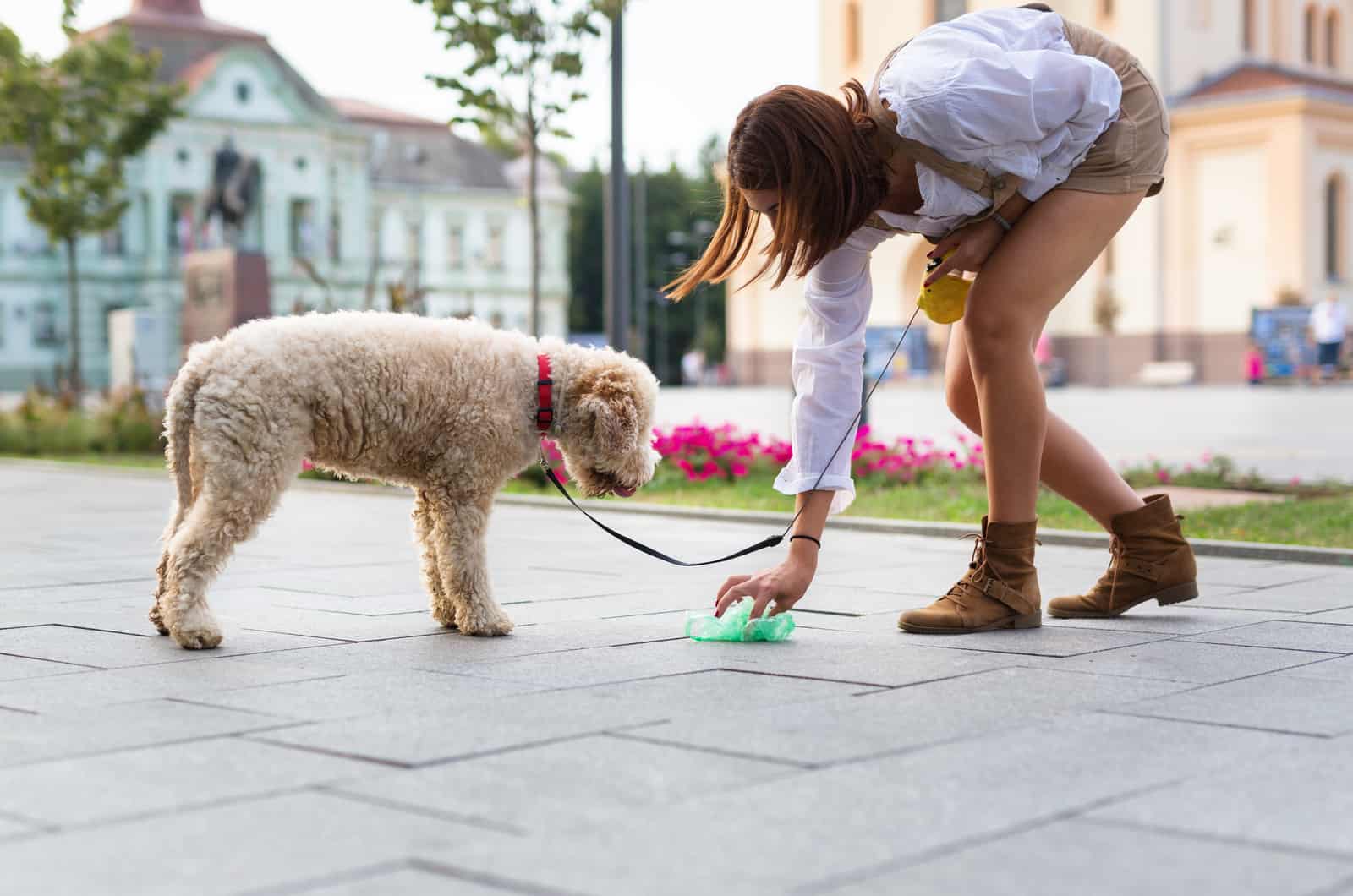
Dogs love routine! You’ll soon have the problem resolved if you can get your pup’s body clock on board.
Keep playtime and potty time separate. If you start playing with your pup while outside waiting for him to poop, there’s a fair chance that he’ll hold off doing his business as he’s enjoying playtime so much!
And he knows the minute he performs, it’s straight indoors, and playtime is over.
Introduce regular mealtimes, play sessions, grooming sessions, and sleeping times. Puppies generally feel the urge for a bathroom break after eating and when they wake up, so these should be the main focus of your efforts.
Smaller dogs are believed to be more difficult to housetrain because of their tiny bladders and fast metabolism. However, all young pups need to poop around five times a day and should be taken out to pee every couple of hours at the very least.
The main thing to remember is to take your pup out first thing in the morning and the last thing at night before going to bed. This reduces the chances of having to take them out in the middle of the night.
Positive Reinforcement Every Time!
Ditch all notions of punishment and yelling right now, as they will not serve you well.
Instead, keep a bag of treats hidden in your pocket and be ready to offer praise, petting, and hugs when your pup gets it right.
Dogs respond far better to reward-based training than they do to punishment. Outdated dog training methods do more harm than good, producing anxious, nervous animals and a relationship with you built on fear.
There are going to be accidents during the potty training process, and the best advice is to deal with them calmly and quietly. Making your dog feel guilty won’t do either of you any favors.
Once your pooch learns that they’ll get a treat or a lot of fuss when they poop outside, you’ll soon be well on the way to overcoming the issue. This works for all breeds, but those regarded as highly intelligent respond very well to reward-based training. Think German Shepherd, Border Collie, Dobermann, Australian Shepherd, etc.
To Carry Or Not To Carry?
Your pup is giving all the right signs, so you spring into action, ready to take him outside to do his business. Do you pick him up and carry him outdoors, or get the leash first?
Opinions differ on this topic, with some experts warning against this practice and others suggesting that it’s a good idea.
On balance, it’s best to carry your young puppy in the first stages of potty training. Picking them up off the floor discourages accidents and gets the pup to the right spot quickly.
It’s best to use this approach just as he wakes up, straight after meals, during the night, and whenever you see the signs.
Otherwise, as you establish a routine, use the leash at other times to get him used to it. As training progresses, you can gradually decrease the number of times you carry your pup.
Prepare For Bad Weather
When the heavens open, we grab a raincoat or an umbrella without thinking anything of it. We’re protected from the elements, but what about our pets?
Many dog owners have seen the look on their furry companion’s face when confronted with a sheet of torrential rain as they open the door. It’s like they’re saying, are you kidding me?
Puppies feel the extremes of weather more keenly and cannot regulate their body temperature properly. This is especially true of small breeds and can even be fatal; tiny dogs can quickly succumb to hypothermia.
Consider investing in a doggy raincoat or jacket, or at least make sure your umbrella is big enough for the two of you.
Dealing With Older Dogs
If your problem involves an older dog (rescue dogs in particular), you’ll probably have an extra challenge on your hands. Some of these poor pooches have behavioral problems resulting from their experiences.
There are stories about two or three-year-old dogs going to forever homes that have only ever used poop and pee pads indoors.
This may prove to be a hard habit to break, so you might consider using a professional dog training service.
Also, some of these dogs have suffered emotional or psychological trauma, maybe even physical abuse. These leave scars that take time to heal and may contribute to problems with housetraining.
If you adopt from a rescue group, you’ll find that most of these amazing organizations use foster carers. These wonderful volunteers invest time rehabilitating and retraining the dogs to be ready for their forever homes.
Lose The Potty Pads As Soon As Possible
If you choose to use these (let’s face it, they are a handy tool, so who can blame you?), it’s best to ditch them as soon as you can. Your puppy will get used to them very quickly, and it may not be so easy to get them out of the habit.
At best, they should be a temporary measure. Using puppy pads indoors while you’re trying to get your pooch to go outdoors may be confusing to them as you are enforcing two different rules.
If you started out using these pads, try moving them a short distance each day until the pad is by the door. Then you can move it outdoors toward your chosen potty area and eventually remove it altogether. By now, your pup should know the command word and will perform on cue.
Puppy Won’t Poop Outside: A Few Final Words
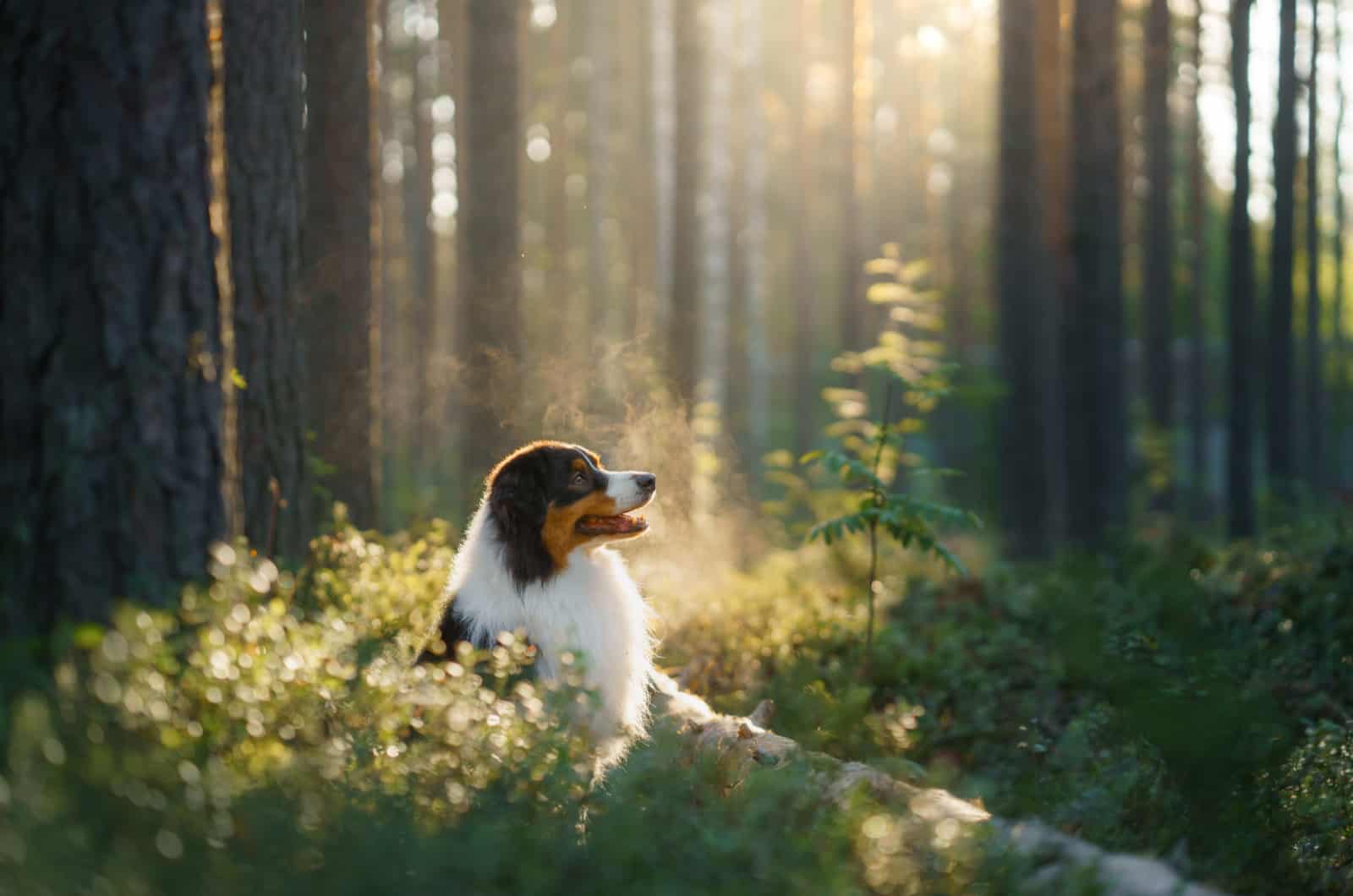
Once you’ve ruled out any medical problems why your puppy won’t poop outside, it is entirely possible to overcome the problem.
So, take courage, whether you have a Pit Bull, German Shepherd, Great Dane, or Shih Tzu pup! Even if you have a Jack Russell (considered the worst breed for potty training), there’s no need to despair.
Although it’s not the most pleasant task, it’s essential to examine your puppy’s deposits as this can give you clues about any health problems.
Check the consistency, color, and whether there’s a nasty odor. Also, you need to see if there is any blood. If you have any concerns whatsoever, contact your vet immediately.
If all is well, take your time, remain calm, and be patient.
Use any of the advice here that you think will help, and never forget that if you bought your pup from a good breeder, they offer a lifetime of support. These people live and breathe dogs, and they’re bound to be able to guide you through this challenging time.
Finally, don’t despair: your puppy will be happily pooping outside in a few months, and that nasty mess on your floor will be a distant memory.
Read Next:
• Parvo Poop Smell: A Crappy Way To Start The Day
• What Does A Normal Puppy Belly Look Like? 4 Ways To Tell
• How To Punish Dogs For Pooping In House
